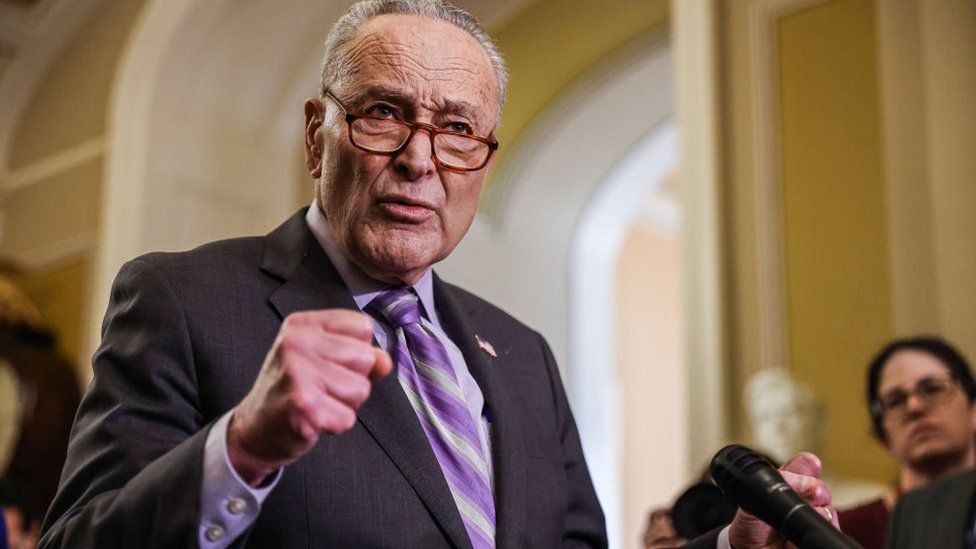ARTICLE AD BOX
 Image source, Getty Images
Image source, Getty Images
Senate Majority Leader Chuck Schumer has introduced a stripped down version of an aid package after Republicans blocked a larger measure
The Senate has advanced an aid package for Ukraine and Israel a day after Republicans blocked a larger bipartisan border security and foreign aid bill.
Lawmakers voted 67-32 to consider a $95b (£75.2b) aid package.
Though Democrats are in favour of passing the aid, Republicans remain divided over the measure.
The new bill strips out several US border measures from a $118b bipartisan package that Senate Republicans voted down on Wednesday.
The fate of the bill remains unclear. If the Senate goes on to approve the aid, it must still be passed by the House of Representatives - a chamber with a Republican majority that has not been eager to approve such funding.
This could be Congress's last shot at passing Ukraine aid for the foreseeable future, and Ukraine has warned that it may not be able to successfully defend itself against Russia without US funds.
The US, which is the biggest provider of aid to Ukraine, has been unable to provide further aid since December because of the political gridlock in Congress.
Senate Majority Leader Chuck Schumer - who drafted the measure - called the vote a "good first step" and pledged to "keep working on this bill - until the job is done".
The bill includes $60bn of military aid for Ukraine and $14.1bn in security assistance for Israel, as well as $9.15bn in humanitarian funding for the two countries.
After rejecting the initial bill, Senate Republicans have now agreed to consider this foreign aid version of the measure - which also includes funds for the Indo-Pacific region. They have kept open the possibility of adding further changes, however.
It is possible Republicans could add some of the border measures that were stripped out of the original bill, or remove some elements of military funding.
The White House had asked Congress to pass a bill that included the foreign aid, which mirrors the one now under consideration, months ago.
Citing a crisis at the southern border, Republican lawmakers had demanded that any bill be linked to strict border security measures. Negotiations over those provisions slowed the process and flow of aid.
But after former President Donald Trump attacked an agreement reached by a bipartisan group of lawmakers, several Republicans rejected the new bill.
Six Democrats also voted against the legislation, mostly in opposition to its border reforms.

 1 year ago
95
1 year ago
95








 English (US) ·
English (US) ·